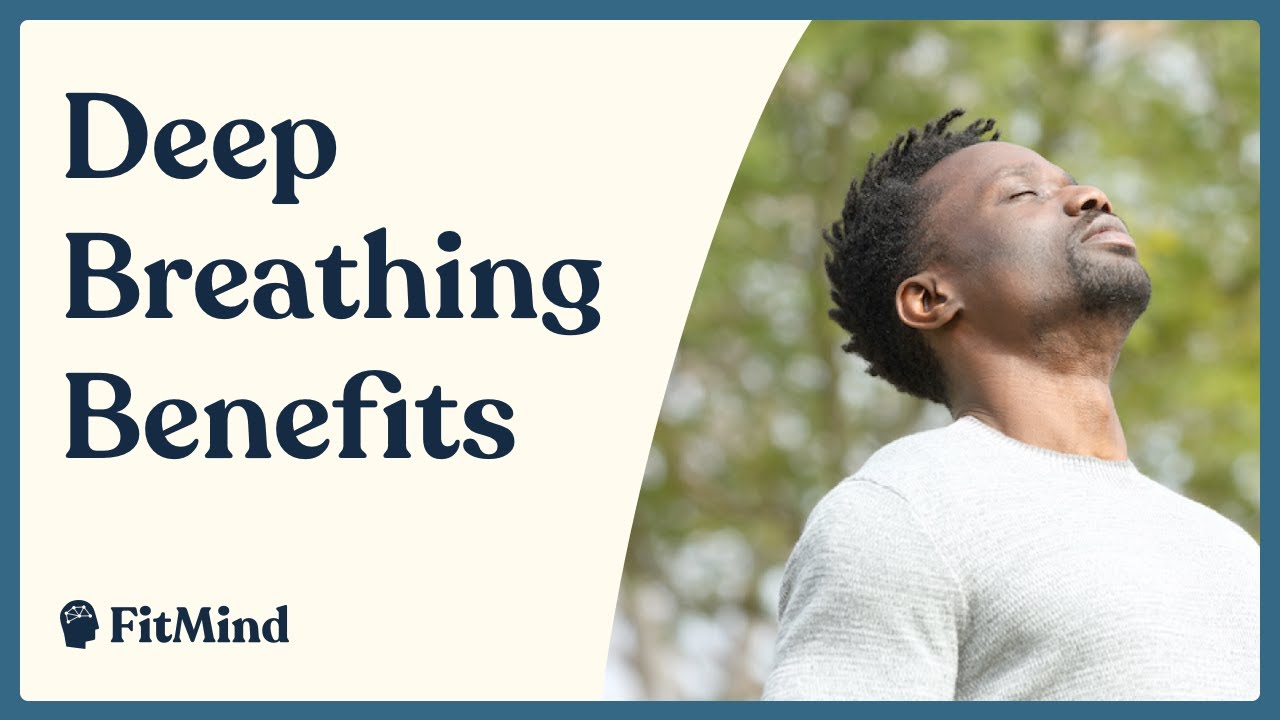The Benefits of Deep Breathing
Deep breathing is a powerful technique that has been practiced for centuries across various cultures and traditions. It involves taking slow, deliberate breaths, filling your lungs to their full capacity, and exhaling fully. In this article, we will explore the numerous benefits of deep breathing and how it can positively impact your physical and mental well-being.
Stress Reduction
One of the key benefits of deep breathing is its ability to reduce stress levels. When we are stressed, our bodies enter a state of fight-or-flight response, leading to increased heart rate, shallow breathing, and muscle tension. Deep breathing activates the body’s relaxation response, triggering a sense of calmness and reducing the production of stress hormones.
Improved Oxygenation
Deep breathing allows for a greater intake of oxygen, which is vital for our overall health. By taking slow, deep breaths, we can expand our lung capacity and increase the amount of oxygen that reaches our bloodstream. This oxygen-rich blood is then transported to our organs and tissues, enhancing their functionality and promoting better overall health.
Enhanced Focus and Mental Clarity
Engaging in deep breathing exercises can greatly improve our focus and mental clarity. By taking the time to slow down and focus on our breath, we can quiet the mind and bring our attention to the present moment. This practice has been shown to reduce mental chatter, increase concentration, and improve cognitive performance.
Strengthened Immune System
Deep breathing has a positive impact on our immune system, helping to strengthen its functionality. The increased oxygenation that occurs during deep breathing stimulates the production of white blood cells, which are essential for fighting off infections and diseases. By incorporating deep breathing into our daily routine, we can boost our immune system and improve our overall health.
Improved Digestion
Believe it or not, deep breathing can also have a positive effect on our digestion. When we are stressed or anxious, our bodies can enter a state of fight-or-flight, which can disrupt the normal functioning of our digestive system. Deep breathing activates the body’s relaxation response, promoting better digestion and nutrient absorption.
Reduced Blood Pressure
Deep breathing exercises have been shown to help lower blood pressure levels. By engaging in slow, deep breaths, we can activate the body’s relaxation response, leading to a decrease in heart rate and blood pressure. Regular practice of deep breathing can contribute to maintaining healthy blood pressure levels and reducing the risk of cardiovascular diseases.
Enhanced Sleep Quality
For those struggling with sleep issues, deep breathing can offer a natural and effective solution. By incorporating deep breathing exercises into your bedtime routine, you can promote relaxation, reduce racing thoughts, and prepare your body for a restful night’s sleep. Deep breathing helps to calm the nervous system, allowing you to achieve a deeper and more rejuvenating sleep.

Deep breathing is a simple yet powerful technique that offers a wide range of benefits for both our physical and mental well-being. By incorporating deep breathing exercises into our daily routine, we can reduce stress, improve focus, strengthen our immune system, and enhance our overall health. Take a moment each day to practice deep breathing and experience the transformative effects it can have on your life.
Frequently Asked Questions about the Benefits of Deep Breathing
1. What are the benefits of deep breathing?
Deep breathing can help reduce stress, improve focus and concentration, increase energy levels, promote relaxation, enhance lung function, and support overall well-being.
2. How does deep breathing reduce stress?
Deep breathing activates the body’s relaxation response, which helps to lower stress hormones, calm the mind, and promote a sense of tranquility and peace.
3. Can deep breathing improve my focus and concentration?
Yes, deep breathing techniques, such as mindful breathing, can enhance focus and concentration by increasing oxygen flow to the brain, improving mental clarity, and reducing distractions.
4. Does deep breathing increase energy levels?
Absolutely! Deep breathing increases oxygen intake, which boosts energy levels by improving circulation, increasing alertness, and providing a natural energy boost.
5. How does deep breathing promote relaxation?
Deep breathing triggers the body’s relaxation response, slowing down the heart rate, relaxing muscles, and reducing tension, leading to a state of deep relaxation and calmness.
6. Can deep breathing enhance lung function?
Yes, practicing deep breathing exercises regularly can strengthen the lungs, increase lung capacity, improve respiratory efficiency, and promote better overall lung health.
7. Are there any mental health benefits of deep breathing?
Absolutely! Deep breathing can help reduce symptoms of anxiety, depression, and other mental health conditions by promoting relaxation, reducing stress, and improving emotional well-being.
8. How often should I practice deep breathing?
It is recommended to practice deep breathing exercises for at least 5-10 minutes each day. However, you can incorporate deep breathing into your daily routine whenever you feel the need for relaxation or stress relief.
9. Can deep breathing help with sleep problems?
Yes, deep breathing exercises, especially before bedtime, can help calm the mind, relax the body, and promote better sleep by reducing anxiety, stress, and racing thoughts.
10. Are there any contraindications to deep breathing techniques?
Deep breathing is generally safe for most people. However, individuals with certain respiratory conditions or medical concerns should consult a healthcare professional before starting any deep breathing exercises.




